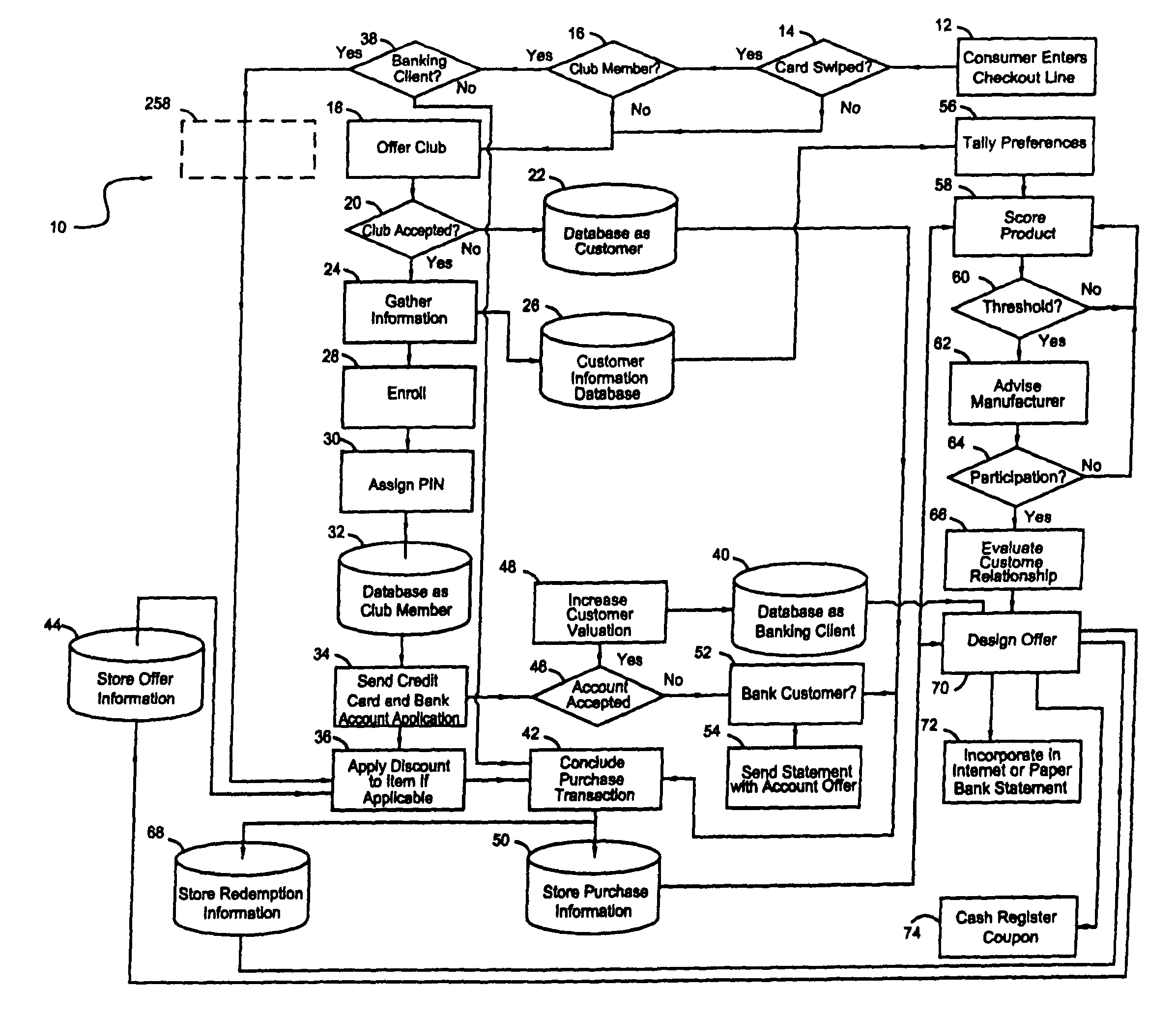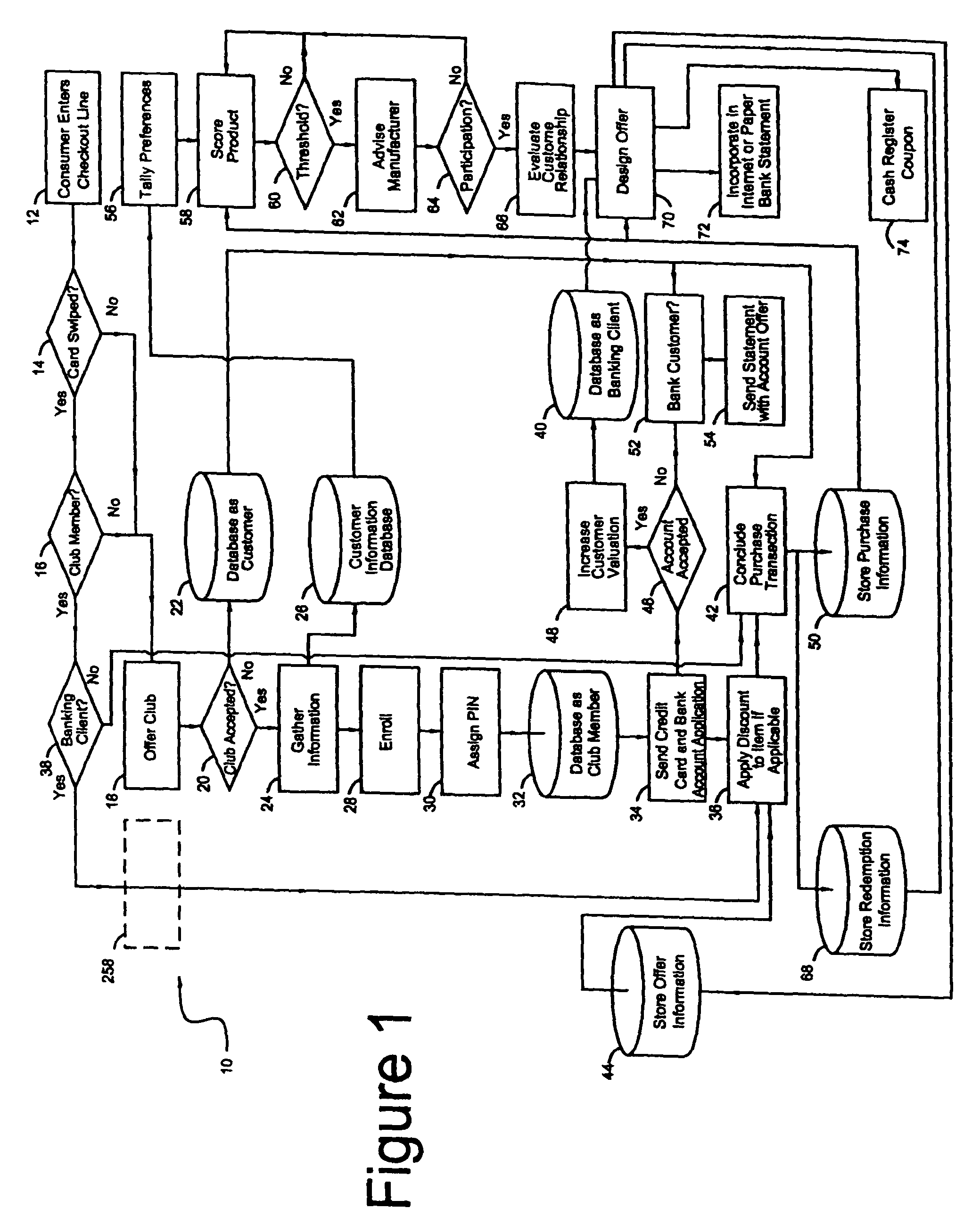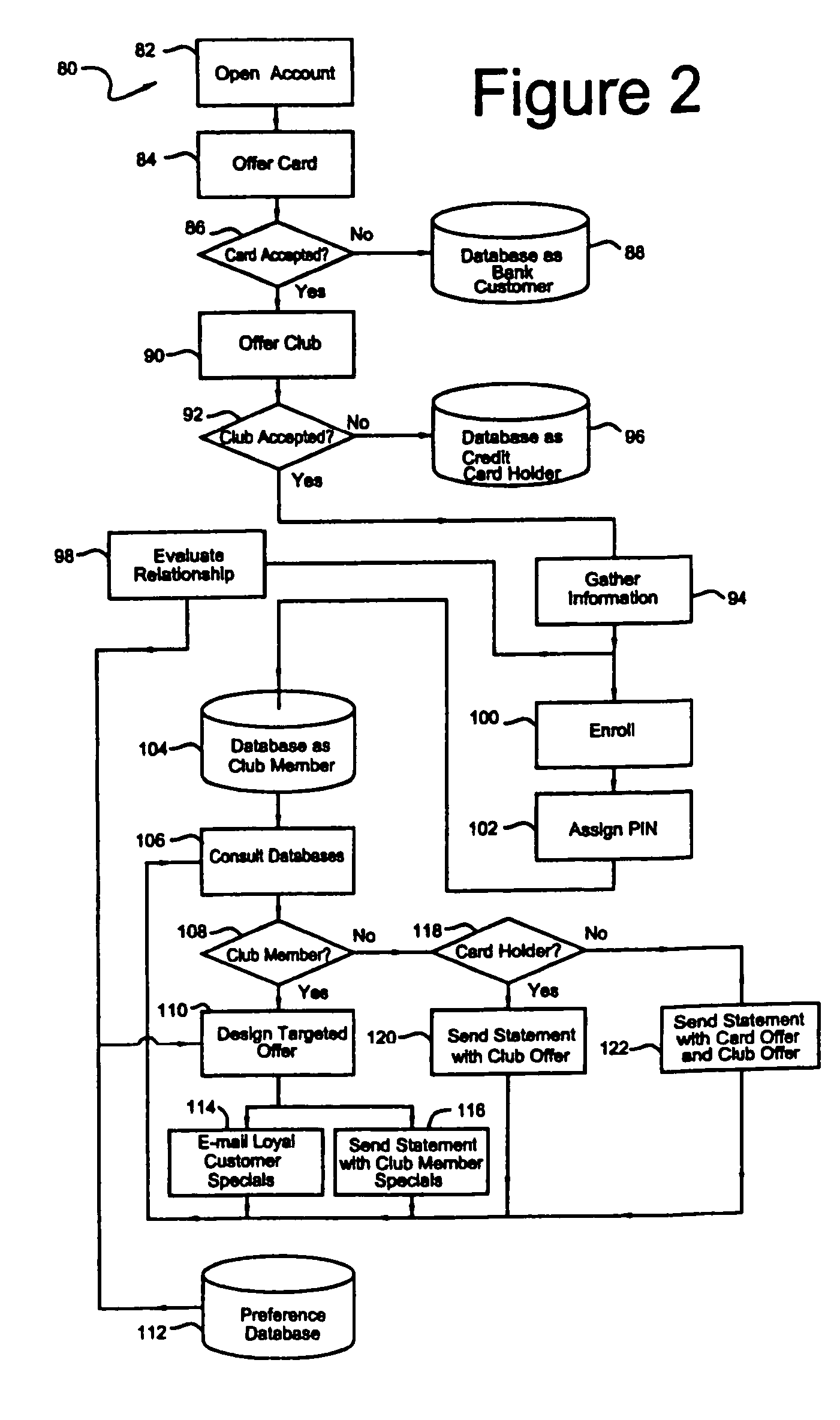Consumer incentive system and business method
a technology of consumer incentive and business method, applied in the field of computer-implemented consumer incentive system, can solve the problems of large business, large truck, specialized manufacturing machinery, and other systems having a relatively high volume throughput, and achieve the effect of avoiding consumer dissatisfaction
- Summary
- Abstract
- Description
- Claims
- Application Information
AI Technical Summary
Benefits of technology
Problems solved by technology
Method used
Image
Examples
Embodiment Construction
[0030]In accordance with the present invention, it is possible for a customer to enter the system through any establishment in communication with the inventive system. In the illustrated embodiment of FIG. 1, a bank is in communication with a supermarket. In accordance with the preferred embodiment, several retail bank branches, working through a central office of the bank, are linked together with numerous retail establishments, for example, supermarkets.
[0031]While it is contemplated that the supermarkets associated with a bank may all be part of a single supermarket chain and share the same trademark, the inventive system is equally applicable to multiple supermarket operators. However, optimization of the model depends upon focusing supermarket traffic to a single location in a given geographic area keyed to the density of supermarkets in the area, transportation infrastructure, population density and the economies of scale of operating a supermarket. More particularly, a superm...
PUM
 Login to View More
Login to View More Abstract
Description
Claims
Application Information
 Login to View More
Login to View More - R&D
- Intellectual Property
- Life Sciences
- Materials
- Tech Scout
- Unparalleled Data Quality
- Higher Quality Content
- 60% Fewer Hallucinations
Browse by: Latest US Patents, China's latest patents, Technical Efficacy Thesaurus, Application Domain, Technology Topic, Popular Technical Reports.
© 2025 PatSnap. All rights reserved.Legal|Privacy policy|Modern Slavery Act Transparency Statement|Sitemap|About US| Contact US: help@patsnap.com



